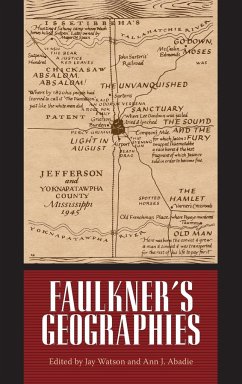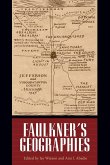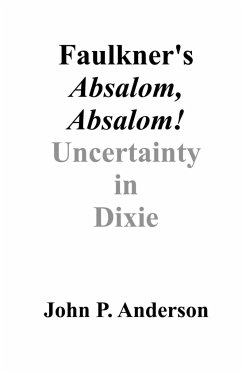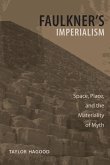Essays that study mobility, place, and spatial imagination in the Nobel Laureate's work Contributors: Benjamin S. Child, Kita Douglas, Farah Jasmine Griffin, Ryan Heryford, Barbara Ladd, José E. Limón, Valérie Loichot, John Shelton Reed, Scott Romine, Harilaos Stecopoulos, and Lorie Watkins The recent spatial turn in social theory and cultural studies opens up exciting new possibilities for the study of William Faulkner's literature. The fictional domains of Yoknapatawpha County and Jefferson, Mississippi, are not simply imagined communities but imaginative geographies of remarkable complexity and detail, as evidenced by the maps Faulkner created of his "apocryphal" county. Exploring the diverse functions of space in Faulkner's artistic vision, the eleven essays in Faulkner's Geographies delve deep into Yoknapatawpha but also reach beyond it, to uncover unsuspected connections and flows linking local, regional, national, hemispheric, and global geographies in Faulkner's writings. Individual contributions examine the influence of the plantation as a land-use regime on Faulkner's imagination of north Mississippi's geography; the emergence of "micro-Souths" as a product of modern migratory patterns in the urban North of Faulkner's fiction; the enlistment of the author's work in the geopolitics of the cultural Cold War during the 1950s; the historical and literary affiliations between Faulkner's Deep South and Greater Mexico; the local and idiosyncratic as alternatives to region and nation; the unique intersection of regional and metropolitan geographies that Faulkner encountered as a novice writer immersed in the literary culture of New Orleans; the uses of feminist geography to trace the interplay of gender, space, and movement; and the circulation of Caribbean and "Black South" spaces and itineraries through Faulkner's masterpiece, Absalom, Absalom! By bringing new attention to the function of space, place, mapping, and movement in his literature, Faulkner's Geographies seeks to redraw the very boundaries of Faulkner studies. JAY WATSON, Oxford, Mississippi, is Howry Professor of Faulkner Studies and professor of English at the University of Mississippi. He is the editor of Conversations with Larry Brown and coeditor of Faulkner and Whiteness ((both from University Press of Mississippi). ANN J. ABADIE, Oxford, Mississippi, is the former associate director of the Center for the Study of Southern Culture at the University of Mississippi and is coeditor of many volumes in the Faulkner and Yoknapatawpha Series. 208 pages (approx.), 6 x 9 inches, 3 b&w illustrations, introduction, index
Hinweis: Dieser Artikel kann nur an eine deutsche Lieferadresse ausgeliefert werden.
Hinweis: Dieser Artikel kann nur an eine deutsche Lieferadresse ausgeliefert werden.








